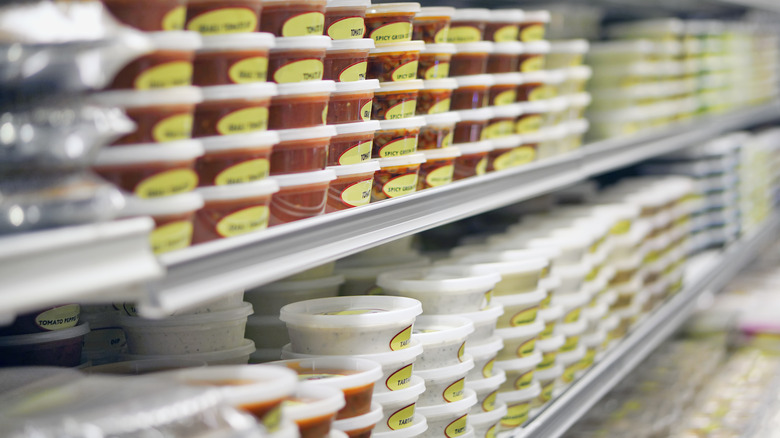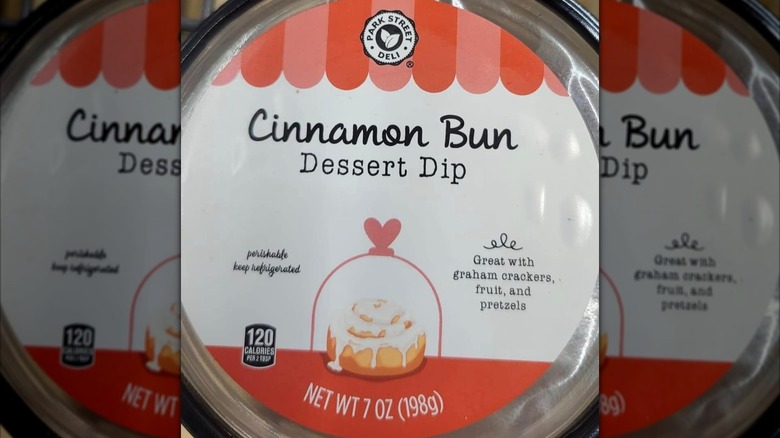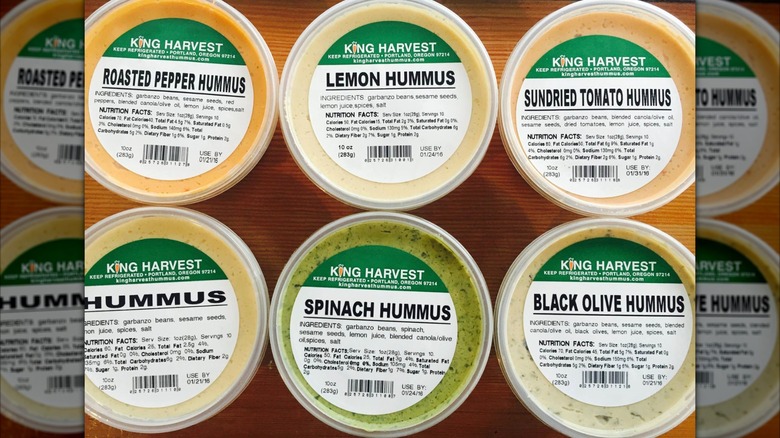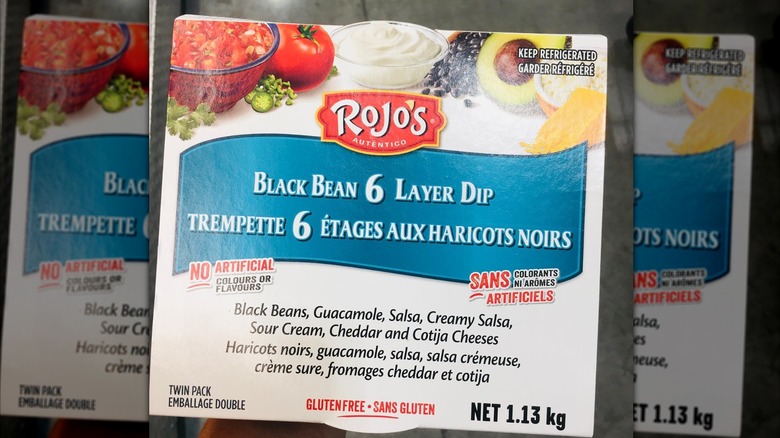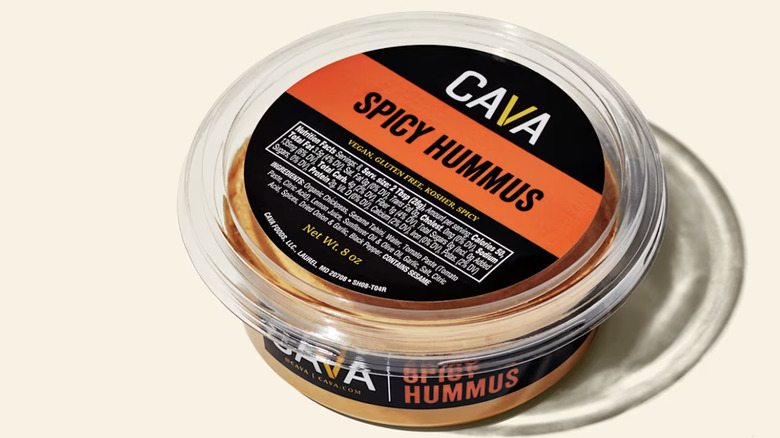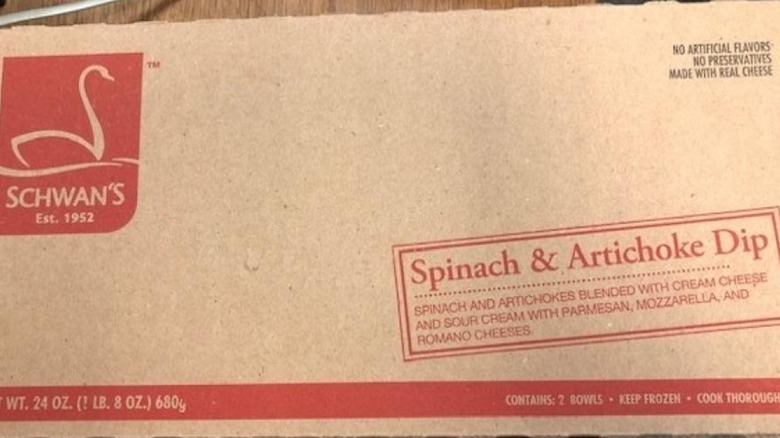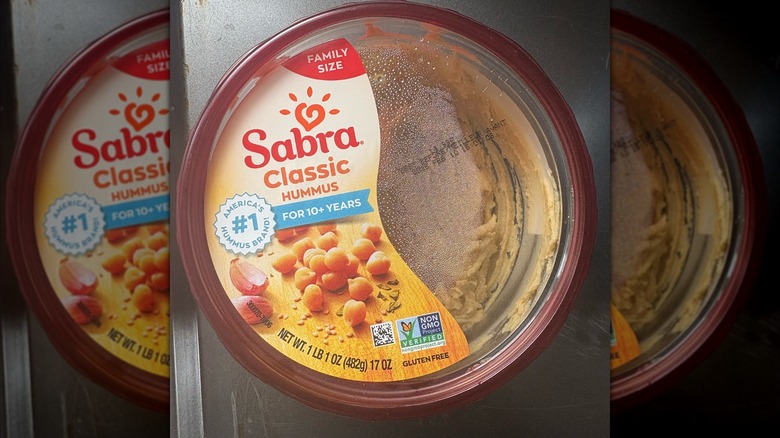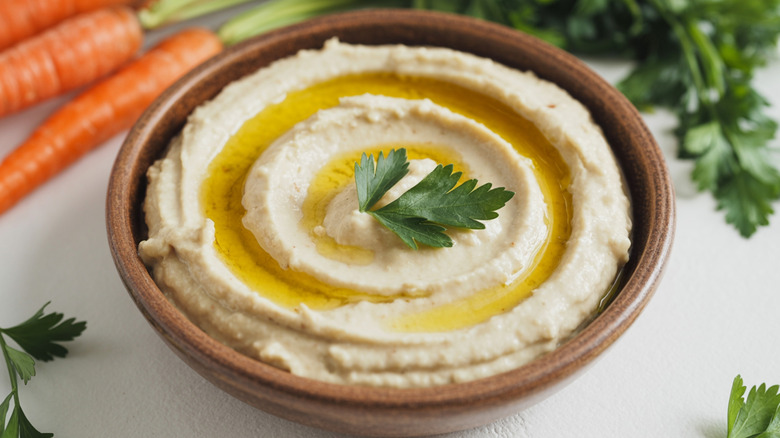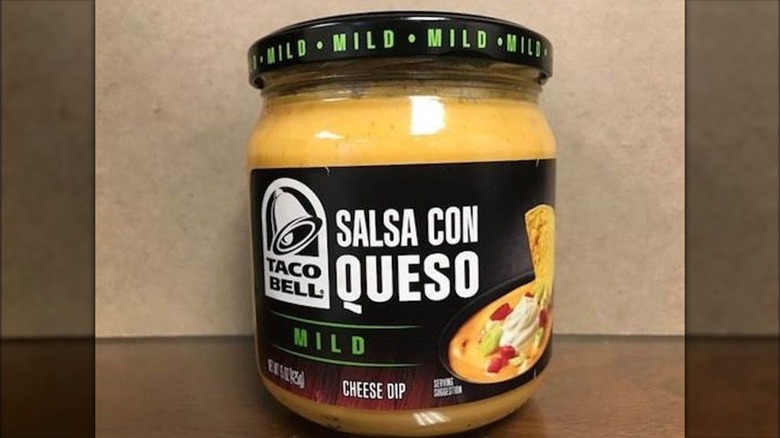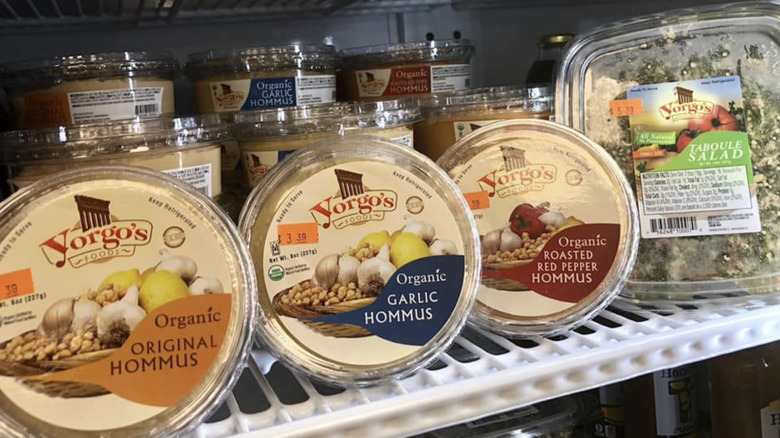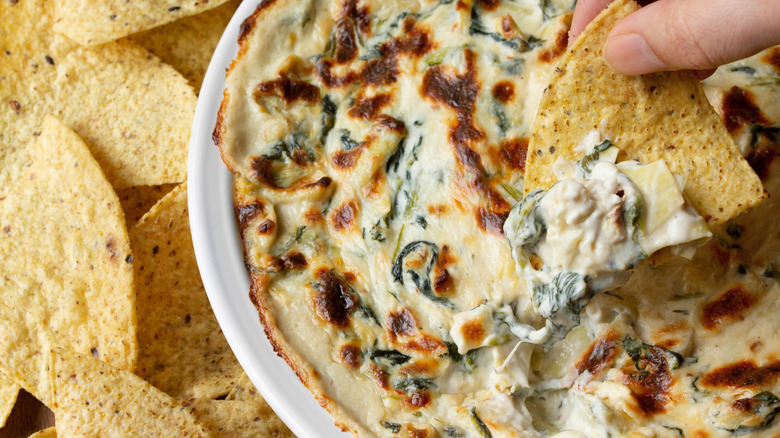Dip Recalls That Affected Millions
Typically paired with crackers, chips, and vegetable sticks, dips can turn basic snacks into flavorful mini meals. They also often play a starring role on charcuterie boards, served alongside olives, cheeses, and cured meats. From a simple onion dip to more elaborate concoctions such as clam chowder dip, these savory spreads are as varied as they are delicious.
As irresistible as these creamy and bold-flavored creations can be, they are not always what they seem. Over the years, a surprising number of dips have made headlines due to unexpected food safety issues, leading to widespread recalls. These safety lapses have often stemmed from the discovery of dangerous bacteria, undeclared allergens, or even physical contamination with foreign objects, reminding consumers that no brand or product is entirely risk-free.
From spinach and artichoke dip to queso and hummus, America's favorite dips have seen their share of drama — including recalls. The following dips have made history for all the wrong reasons.
Aldi recalls Park Street Deli Cinnamon Bun Dessert Dip due to possible contamination with foreign object (2025)
With approximately 2,500 stores in the U.S. alone, Aldi is one of the most influential grocery chains in the world. As part of its distinctive business model, more than 90% of the items sold at U.S. Aldis are exclusive, store-brand products. One of these is the Park Street Deli Cinnamon Bun Dessert Dip — a sweet, cream cheese-based condiment designed to mimic the flavor of cinnamon rolls.
In 2025, Aldi pulled more than 19,000 tubs of the product from supermarket shelves due to potential contamination with plastic fragments. It's unclear how the foreign material may have ended up in the 7-ounce tubs. The dip had been distributed nationwide, making the recall rather widespread. The FDA gave the recall a class II designation, signaling that while consumption of the product posed health risks, these consequences were generally considered reversible and non-life-threatening. This isn't the FDA's highest safety alert rating, but ingesting plastic pieces is far from harmless, as it can lead to choking or internal injuries.
Pacific Coast Fresh recalls King Harvest Hummus due to the possible presence of plastic fragments (2025)
Although there are a few charcuterie board safety rules to follow, the most important one is knowing your dips are safe to eat. Founded in 1977 as Pacific Coast Fruit Company, Pacific Coast Fresh is a family-owned produce distribution business based in the Pacific Northwest. The company's reputation was tested in 2025, however, when it had to recall several of its King Harvest hummus products due to possible contamination with plastic. To prevent any potential injuries, the Portland-based company recalled nearly 72,000 cups of flavored chickpea dip variants, including classic hummus, balsamic, black olive, chipotle, jalapeño, lemon, roasted pepper, roasted garlic, spinach, sun-dried tomato, toasted onion, and sesame.
The FDA classified the incident as a class II recall, meaning that the contaminated dip could lead to minor medical issues, but severe health consequences were unlikely. The hummus products were sold at stores in Idaho, Oregon, and Washington.
Notably, Pacific Coast Fresh is no stranger to product recalls. Just a year prior, in 2024, the company pulled its King Harvest Spinach Hummus from grocery store shelves after discovering that the product could be contaminated with plastic fragments. It's unclear whether this earlier recall is a part of a recurring production issue or just a coincidence.
Simply Fresh recalls Rojo's Black Bean 6 Layer Dip due to possible listeria monocytogenes contamination (2024)
As often happens, the Simply Fresh recall of Rojo's Black Bean 6 Layer Dip was triggered by a supplier problem rather than a manufacturing mishap. More specifically, the dip was pulled off the shelves after supplier Rizo López Foods alerted that its cotija cheese — one of the ingredients in the dip — may have been contaminated with listeria monocytogenes. At the time, more than 7,000 cases of the dip had already been distributed to Costco stores in several states across the nation. Luckily, no adverse health effects were linked to the product at the time of the recall.
In healthy adults, listeria monocytogenes typically manifests through symptoms like fever, nausea, muscle stiffness, and upset stomach, which can take over two months to appear. However, the bacteria have the potential to trigger serious — and in some cases deadly — infections, particularly in infants, seniors, and individuals with compromised immune systems. It also poses a danger to pregnant women, sometimes leading to pregnancy complications, including miscarriage or stillbirth.
Cava Foods recalls Cava Spicy Hummus due to undeclared allergen (2023)
Cava is a Mediterranean-inspired fast casual restaurant chain with more than 400 locations in the U.S. The restaurant's menu centers around bowls and pitas filled with dips, fresh herbs, and high-quality ingredients. Cava Foods also operates a line of Mediterranean dips, spreads, and dressings that is sold in grocery stores.
In 2023, Cava Foods recalled mislabeled tubs of its tomato paste-based spicy hummus. The safety alert was issued after a store notified Cava Foods that some tubs of the spicy hummus had the wrong lid, showing instead the label of Cava Spicy Labneh. Far from just misleading customers, the mix-up posed a serious risk for those with sesame allergies, since the spicy hummus contains sesame and spicy labneh doesn't. Listed as one of the FDA's nine major allergens — putting it in the same category as milk, shellfish, and tree nuts — sesame can trigger severe allergic reactions in sensitive individuals. Fortunately, no customers reported any issues. The affected hummus was sold nationwide through Whole Foods Market, Giant Foods, Mom's Organic Market, and various independent stores.
Fairmont Foods recalls Spinach and Artichoke Dip due to mislabeling (2022)
Mislabeling is one of the most common reasons for food recalls. That's precisely what prompted Fairmont Foods to pull its spinach and artichoke dip in 2022, after discovering that the packaging failed to accurately list the product's ingredients. The dip in question was transported in Schwan's brand corrugated boxes, which, while labeled "Spinach and Artichoke Dip," failed to disclose all of its ingredients.
In reality, the dip was found to contain two well-known allergens not specified on its packaging — soy and wheat. Rather than being sold in grocery stores, the product was distributed across the continental U.S. via Schwan's home delivery service. While no illnesses were reported at the time of the recall, a food allergy can result in digestive issues, hives, and swollen airways. At its worst, an allergy can trigger a potentially life-threatening reaction called anaphylaxis. Due to the relative seriousness of these adverse reactions, customers were instructed to destroy the product and request a refund.
Sabra Dipping Company recalls Classic Hummus due to salmonella risk (2021)
As its name suggests, Sabra Dipping Company specializes in the production of dips. While the company is most well-known for its creamy hummus, it also manufactures chunky guacamole. Unfortunately, the company's mission to produce healthy products with high-quality ingredients came under scrutiny in 2021 after routine testing by the FDA detected a possible salmonella contamination.
In total, approximately 2,100 cases of Sabra's 10-ounce Classic Hummus were pulled off supermarket shelves. The dip was sold at retail stores in 16 states. While no illnesses were connected to the product at the time of the recall, salmonella can be debilitating and even fatal. In healthy adults, the pathogen can lead to symptoms such as fever, diarrhea, and cramps. However, the bacteria can result in much more serious health effects in children, the elderly, and individuals with weakened immune systems.
This wasn't the first time Sabra found itself on a recall list. The company recalled its hummus products in 2015 and 2016 due to concerns over listeria monocytogenes contamination. In 2015, Sabra pulled approximately 30,000 cases of its Classic Hummus after a sample of the product tested positive for the pathogen. A year later, Sabra once again recalled a range of its hummus products after listeria was found at its manufacturing facility.
Winter Gardens Quality Foods recalls Spinach Artichoke Dip over fears of undeclared allergen (2020)
Founded as a meat locker plant and grocery store in 1946, Winter Gardens Quality Foods gradually expanded to produce dips, salads, soups, and grilled meats before being acquired by Sandridge Crafted Foods in 2023. However, before Sandridge came into the picture, Winter Gardens Quality Foods made headlines after a mislabeling issue forced the company to take action and recall one of its products.
In 2020, Winter Gardens Quality Foods withdrew its Whole Foods Market Spinach Artichoke Dip from circulation following an internal review that revealed that the product contained an undeclared egg allergen. It's unclear how the eggs ended up in the 12-ounce tubs of the spread. The affected dip was sold at Whole Foods Market stores in Pennsylvania, Maryland, Virginia, New Jersey, and Washington, D.C. Fortunately for consumers, no allergic reactions or hospitalizations were linked to the product at the time of the recall.
Kroger recalls range of cheese dips due to potential contamination with salmonella (2020)
The 2020 Kroger cheese dip recall was a part of a larger national salmonella outbreak after onions supplied by Thomson International were identified as the potential carriers of the pathogen. The onions had been used in a range of products, leading to more than 1,000 illnesses and 160 hospitalizations in the U.S., plus over 500 additional cases in Canada. Kroger sourced its red, yellow, and white onions from Onions 52, which, in turn, had received its supply from Thomson International.
In total, Kroger recalled more than 30 cheese-based dips and spreads under a range of brand names, including Murray's and Jarlsberg. Just a few of the affected products included Murray's Chads Smoked Gouda Dip, Deli Applewood Cheddar Dip, and Jarlsberg Cheese Spread. None of the dips were specifically linked to any of the cases of salmonella, but Kroger recalled the products out of precaution.
Pita Pal Foods recalls range of hummus dips due to possible contamination with listeria monocytogenes (2019)
The 2019 listeria recall involving Pita Pal Foods hummus dips affected nearly 90 products, making it one of many hummus recalls that affected millions. The incident involved several flavors of the chickpea dips, from classic and spicy to roasted red pepper and chipotle black bean. It also included single-serve snack packs with pretzels. The spreads were sold under different brand names, including Buc-ee's, Fresh Thyme, Harris Teeter, Lantana, Pita Pal, Reasor's, Schnucks, Lidl, and 7-Select.
The recall was initiated after an FDA inspection discovered listeria monocytogenes at Pita Pal Foods' manufacturing facility. The pathogen was not found in any of the products, and no illnesses were reported at the time, making this recall a precautionary measure to protect consumers. The dips were sold nationwide and had also been shipped to the United Arab Emirates.
Kraft Heinz Foods Company recalls Taco Bell Salsa Con Queso Mild Cheese Dip over potential botulinum contamination (2018)
The story of Kraft Heinz Foods Company began in 1869, when Henry John Heinz started a company called Anchor Pickle and Vinegar Works that produced horseradish. After the business failed, Heinz reestablished the company in 1876 with his brother and cousin, introducing the now-iconic tomato ketchup that same year. Since then, especially after merging with Kraft Foods in 2015, Kraft Heinz has grown into a global food powerhouse, offering more than 200 brands of products. However, with success also comes risk — the recall of the Taco Bell Salsa Con Queso Mild Cheese Dip being a prime example.
In 2018, Kraft Heinz pulled its Taco Bell Salsa Con Queso Mild Cheese Dip due to fears over potential contamination with clostridium botulinum, the pathogen responsible for botulism. The safety alert was sparked after the dips showed signs of separation, which could have created the ideal conditions for clostridium botulinum to grow. In total, about 7,000 cases of the dip were recalled nationwide.
Botulism can develop in improperly canned or jarred foods, leading to severe illness and, in extreme cases, even death. Symptoms of the poisoning include muscle weakness, double vision, dizziness, constipation, and difficulty breathing, speaking, or swallowing. Because the toxin has no taste or smell, even foods that look normal could be contaminated.
Weis Markets recalls Weis Quality Dried Beef Party Rye Dip over undeclared allergens (2018)
Founded in 1912 in Sunbury, Pennsylvania, as Weis Pure Foods, Weis Markets is a regional grocery chain with more than 200 stores across the U.S. Northeast and Mid-Atlantic. In 2018, Weis initiated a recall of its Weis Quality Dried Beef Party Rye Dip after discovering that the product contained undeclared milk and egg allergens. The problem came to light during a routine inspection, which is one way recalled foods are discovered.
The Weis mayo and sour cream-based dip was sold in select Weis Markets stores in New York and Pennsylvania. Fortunately, no illnesses or allergic reactions were reported at the time of the recall, and the affected items were swiftly removed from grocery store shelves. Notably, Weis Markets initiated another product recall earlier in the same year. The product in question was the company's pre-made Penne Pasta with Asiago Sauce and Grilled Chicken single-serving meal, which was pulled from the shelves after it was found to contain undeclared milk.
Yorgo's recalls all Greek-style foods, including dips, due to potential listeria monocytogenes contamination (2017)
In 2017, Yorgo's pulled a range of Greek-style foods from supermarket shelves nationwide after listeria monocytogenes was discovered during a routine inspection in the processing facility. The pathogen was also detected in a sample of the company's Original Tahini Sauce. Yorgo's stopped all manufacturing during the investigation, as both the FDA and the Manchester-based company worked to pinpoint the source of the contamination.
In total, Yorgo's ended up recalling over 40 different products. These included grape leaves, taboule salad, roasted red peppers, falafel, chickpea salad, and black bean salad. The company also pulled a range of dips, including tzatziki, baba ganoush, and flavored and non-flavored hummus. The affected products were distributed in multiple sizes of packages and tubs. No health issues were tied to the affected items at the time of the recall, which was initiated as a preventive measure. You may be better off whipping up this Gordon Ramsay-approved smoky baba ganoush at home.
La Terra Fina recalls spinach dip products due to potential listeria monocytogenes exposure (2015)
Founded in 1983, La Terra Fina produces dips, spreads, and quiches using quality ingredients and no artificial colors or flavors. In 2015, the company initiated a recall of its spinach-based dips due to a possible contamination with listeria monocytogenes, highlighting that a clean-label approach doesn't always guarantee a risk-free product.
The recall involved products in various sizes, including Spinach, Artichoke & Parmesan Dip with Greek yogurt, and Chunky Spinach, Artichoke & Parmesan Dip. La Terra Fina initiated the recall after receiving an alert from its organic spinach supplier that its produce may be contaminated with listeria monocytogenes. The dips had been sold in Costco stores in several regions nationwide, as well as Smart & Final stores along the West Coast. No cases of illness were linked to the products when the recall was announced, with the move taken as a safety precaution.
